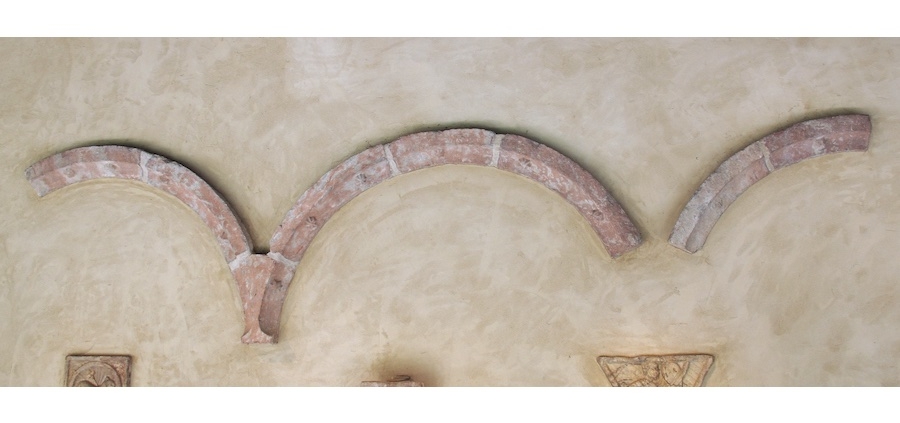Two Poems by Salvador Espriu / Translated from the Catalan by Andrew Kaufman and Antonio Cortijo Ocana
Sky of Jerusalem
You have already seen the resplendent
mountains? Out of silences
and the distant cold light of stars,
God made for us our
city. From a great dream
where our lips confine us,
from songs of longing, we would come,
free, who today are beggars
offering our backs
to so many blows. If you stopped
weeping for yourselves, praises
of frost would open to us
the afternoon of silver olive groves
and the light of marble,
lilies, rivers: yes, the old
plentitude, perfect flights
of falcons above the one
palace worthy of princes.
Invitation to Leave
The golden fruit, far-off.
—Leave behind the memory
of the lost afternoon.
Leave behind the voice
of the mountain.
Leave the harbor.
Navigate toward the port
of hope.
Calm, island, sailing ship,
the golden fruit.
♦ ♦ ♦
Preternaturally Hushed: A Note on the Poetry of Salvador Espriu
Salvador Espriu remains all but unavailable in English and virtually unknown this side of Catalonia, due largely to the obscurity of the Catalan in which he wrote. But more than 35 years after his death he retains the stature of a national poet in Catalonia. Harold Bloom, who read Catalan, included him in his “Western Canon” and described Espriu as having been “deserving of a Nobel Prize” and as the equal of the great 20th-century modernist poets. Bloom characterized Espriu’s poetry as “elegiac,” “haunted by the skeptical wisdom of Job and Ecclesiastes,” and “preternaturally hushed”—the work of “the most hushed poet I’ve ever heard.”
Espriu claimed the bible as his only literary influence, and his work is infused with biblical echoes, allusions, themes, and telos. His poems move fluidly between bits of narrative that are deeply personal, often subtly entwined with Catalan motifs, and material that reflects biblical and classical motifs or elements. The personal-sounding narrative fragments, often inflected with Catalan-related elements, likewise lend their immediacy to the biblical and classical motifs or allusions, which in turn imbue the former with resonance and depth they could not otherwise obtain.
What may be Espriu’s greatest contribution to literature is that, without relying on literal belief or faith, he managed, like William Blake, to employ biblical motifs and themes to convey a Judeo-Christian sense or prophecy of transcendence. As seen in poems such as “The Sky of Jerusalem,” the structural elements characteristic of Espriu’s poetry make it possible for his poems to break into visionary moments and epiphanies of an intensity associated with the British Romantic poets.
Virtually all readers familiar with Catalan poetry describe Espriu as retaining the stature of a national poet. The widespread and enduring popular regard for Espriu in his native land is all the more striking in that his poetry is lyric rather than epic or sequentially narrative, avoids mention of specific personages and events, eschews the taint of nationalism, and, like that of other great 20th-century modernist poets, can be challenging.
Espriu published nine books of poetry, six novels, and had three plays produced, all in Catalan. He won every major award available to poets in Catalonia. His work is the subject of two book-length critical studies in English: The Poetry of Salvador Espriu: To Save the Words, by the British critic Gareth Walters; and T. S. Eliot and Salvador Espriu: Converging Imaginations, by Didac Llorens Cupedo, which is based on the stated conviction that both poets are equally accomplished.
– Andrew Kaufman
♦ ♦ ♦
Andrew Kaufman’s books include The Cinnamon Bay Sonnets, winner of the Center for Book Arts award; Earth’s Ends, winner of the Pearl Poetry Award; Both Sides of the Niger; The Complete Cinnamon Bay Sonnets; and The Rwanda Poems: Voices and Visions from the Genocide, forthcoming from New York Quarterly Books. He is the recipient of an NEA award for poetry. His essay “The Devil Was Running Things Then: The Rwandan Genocide and the Poetry of Witness” appeared in the September 2020 edition of Today’s American Catholic. His translations with Antonio Cortijo Ocaña of the poems of Salvador Espriu have appeared in Today’s American Catholic, Commonweal, and World Literature Today, many for the first time in English.
Antonio Cortijo Ocaña is a professor in the Department of Spanish and Portuguese Studies at the University of California–Santa Barbara, where he is the founding director of the Center for Catalan Studies and the founding editor of the journal eHumanista. A native Catalan speaker, he has written, edited, or translated more than 50 books devoted to Catalan, Spanish, and Latin American literature, religion, and culture, including six volumes of translations. The latter include his translation of Ramon Llull´s A Contemporary Life (Vita coaetanea) from Latin into Spanish and English, for which he received the 2017 Francesco Saverio Nitti award. He received the 2001 Diputación de Sevilla award for his Theory of History and Political Theory in 16th-Century Spain, and was a co-recipient of the 2011 Scripta Humanistica award for his Catalan Humanism.





Leave a Reply
Want to join the discussion?Feel free to contribute!